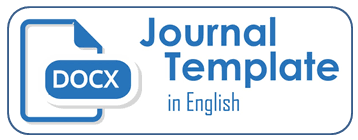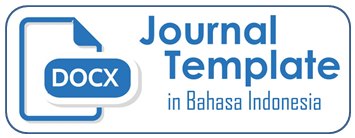PERAN MANAJEMEN LABA, DAN KEPEMILIKAN INSTITUSI TERHADAP PERINGKAT OBLIGASI PADA PERUSAHAAN NON KEUANGAN YANG TERDAFTAR DI PT.PEFFINDO
DOI:
https://doi.org/10.26486/jramb.v7i1.1830Keywords:
Manajemen Laba, Kepemilikan Institusional, Peringkat Obligasi, Perusahaan Non KeuanganAbstract
Pemeringkatan obligasi dilakukan oleh perusahaan obligasi yang independen, obyektif, dan dapat dipercaya. Di Indonesia, perusahaan pemeringkat obligasi adalah PT. PEFFINDO. Peringkat obligasi yang diterbitkan oleh PT. PEFFINDO bertujuan memberikan informasi tentang kemampuan perseroan dalam melunasi obligasi yang diterbitkan. Penelitian ini bertujuan untuk menguji bagaimana pengaruh manajemen laba dan kepemilikan institusional terhadap peringkat obligasi. Populasi dalam penelitian adalah pada perusahaan non keuangan yang terdaftar di PT. PEFFINDO periode 2016-2019.
Pemeringkatan obligasi dilakukan oleh perusahaan obligasi yang otonom, tidak bias dan dapat diandalkan. Di Indonesia, lembaga pemeringkat obligasi adalah PT. PEFFINDO. Peringkat obligasi yang diberikan oleh PT. PEFFINDO dapat memberikan data tentang kemampuan organisasi untuk memproses jaminan yang diberikannya. Survei ini bertujuan untuk mempertimbangkan dampak pendapatan eksekutif dan kepemilikan institusional terhadap evaluasi obligasi. Peserta ujian ini adalah perusahaan non moneter yang terdaftar di PT. PEFFINDO periode 2016-2019. Riset ini terdapat 11 perusahaan. Pengujian yang digunakan untuk menentukan contoh tersebut dan jenis informasi adalah bersifat kuantitatif, yaitu laporan anggaran perusahaan non keuangan yang terdaftar di Bursa Efek Indonesia dari tahun 2016 hingga 2019. Penelitian ini menggunakan analisis regresi logistik, dimana variabel terikat yaitu variabel dummy. Hasil penelitian ini diperoleh peringkat obligasi pada perusahaan non keuangan yang terdaftar di PT. PEFFINDO dipengaruhi oleh kepemilikan institusional, dan tidak dipengaruhi oleh manajemen laba.
References
Andreicovici, I., Cohen, N., Ferramosca, S., & Ghio, A. 2020. Two wrongs make a ‘Right’? Exploring the ethical calculus of earnings management before large labor dismissals. Journal of Business Ethics, 1-27.
Anggraini, D., & Tanjung, P. R. S. 2020. Company Value: Disclosure Implications of Sustainable Supply Chain, Profitability and Industrial Profile. International Journal of Supply Chain Management, 9(2), 648-655.
Buchanan, B., Cao, C. X., & Chen, C.2018. Corporate social responsibility, firm value, and influential institutional ownership. Journal of Corporate Finance, 52, 73-95.
Dannhauser, C. D. 2017. The impact of innovation: Evidence from corporate bond exchange-traded funds (ETFs). Journal of Financial Economics, 125(3), 537-560.
Fahdiansyah, R. 2020. Struktur Kepemilikan Dan Nilai Perusahaan Dengan Corporate Social Responsibility Sebagai Variabel Pemoderasi (Studi Pada Perusahaan Manufaktur Yang Listing di Bursa Efek Indonesia). Journal of Enterprise and Development, 2(2), 47-56.
Hasty, A. D., & Herawaty, V. 2017. Pengaruh struktur kepemilikan, leverage, profitabilitas dan kebijakan dividen terhadap manajemen laba dengan kualitas audit sebagai variabel moderasi. Media Riset Akuntansi, Auditing & Informasi, 17(1), 1-16.
Lerner, J., & Nanda, R. 2020. Venture Capital's Role in Financing Innovation: What We Know and How Much We Still Need to Learn. Journal of Economic Perspectives, 34(3), 237-61.
Maltais, A., & Nykvist, B. 2020. Understanding the role of green bonds in advancing sustainability. Journal of Sustainable Finance & Investment, 1-20.
Mahrani, M., & Soewarno, N. 2018. The effect of good corporate governance mechanism and corporate social responsibility on financial performance with earnings management as mediating variable. Asian Journal of Accounting Research. Vol. 3 No. 1, 2018.pp. 41-60.
Muda, I., Maulana, W., Sakti Siregar, H., & Indra, N. 2018. The analysis of effects of good corporate governance on earnings management in Indonesia with panel data approach. Iranian Economic Review, 22(2), 599-625.
Nelmida, N.2019. The Impact of Interest Rate, Inflation Rate, Time to Maturity and Bond Rating: Indonesia Case. International Journal of Economics, Business and Entrepreneurship, 2(1), 27-40.
Patau Brunet, J.2020. Empirical evolution of credit risk over a decade in IBEX 35 companies and its relationship with the qualification of its ratings. Intangible Capital, 16(2), 61-77.
Pinatik, G. 2018. Pengaruh Kepemilikan Institusional Dan Kepemilikan Manajerial Terhadap Peringkat Obligasi Pada Perusahaan Manufaktur Yang Terdaftar Di Bei Pada Tahun 2012-2014. Jurnal Manajemen dan Bisnis, 3(2).
Putri, Z. B. 2018. Pengaruh Corporate Social Responsibility terhadap nilai perusahaan dengan kepemilikan manajerial sebagai Variabel Moderating. Jurnal Ilmu dan Riset Manajemen (JIRM), 7(3).
Perez-Calero, L., Hurtado-Gonzalez, J. M., & Lopez-Iturriaga, F. J. 2019. Do the institutional environment and types of owners influence the relationship between ownership concentration and board of director independence? An international meta-analysis. International Review of Financial Analysis, 61, 233-244.
Prastowo, D., & Supriyadi, E. 2020. Peranan Manajemen Laba Dalam Memoderasi Faktor-Faktor Yang Mempengaruhi Peringkat Obligasi. Ekobisman-Jurnal Ekonomi Bisnis Dan Manajemen, 4(3), 194-209.
Ratnawati, Y., & Awalina, P.2020. Pengaruh Manajemen Laba Dan Kinerja Keuangan Terhadap Peringkat Obligasi (Studi Kasus Pada Lembaga Keuangan Perbankan Di Bursa Efek Indonesia). Jca (Jurnal Cendekia Akuntansi), 1(1), 18-27.
Rizki, K. A., Gama, A. W. S., & Astiti, N. P. Y. 2018. Pengaruh Manajemen Laba, Rasio Keuangan dan Mekanisme Corporate Governance Terhadap Peringkat Obligasi. In Forum Manajemen STIMI Handayani Denpasar (Vol. 16, No. 2, pp. 43-53).
Sofiana, Y., Maghviro, H. E., & Lestari, A. D. 2018. Role of Share Ownership and Dividend Policy on Financial Performance (Case Study at Construction Service Company). International Journal of Accounting & Finance in Asia Pasific (IJAFAP), 1(1).
Sugiyono, 2017. “Metode Penelitian Bisnis Pendekatan Kualitatif Kuantitafâ€. Jl. Gegerkalong Hilir No. 84 Bandung.
Tang, D. Y., & Zhang, Y. 2020. Do shareholders benefit from green bonds?. Journal of Corporate Finance, 61, 101427.
Ullah, M. S., Muttakin, M. B., & Khan, A. 2019. Corporate governance and corporate social responsibility disclosures in insurance companies. International Journal of Accounting & Information Management.Vol. 27 No. 2, pp. 284-300.
Wibowo, A. E., & Linawati, L. 2020. Pengaruh Likuiditas, Profitabilitas Dan Leverage Terhadap Peringkat Obligasi Perusahaan Di Indonesia. Jurnal Riset Manajemen Sekolah Tinggi Ilmu Ekonomi Widya Wiwaha Program Magister Manajemen, 7(2), 143-152.
Widarti, S., & Pramajaya, J. 2018. The Effect Of Profit Management On Company Performance. International Journal of academic research in Economics and Management sciences, 7(4), 44-63.
Downloads
Published
Issue
Section
License
Authors who publish with (JRAMB) Jurnal Riset Akuntansi Mercu Buana agree to the following terms:
Authors retain copyright and grant the JRAMB right of first publication with the work simultaneously licensed under a Creative Commons Attribution License (CC BY-SA 4.0) that allows others to share (copy and redistribute the material in any medium or format) and adapt (remix, transform, and build upon the material) the work for any purpose, even commercially with an acknowledgement of the work's authorship and initial publication in JRAMB. Authors are able to enter into separate, additional contractual arrangements for the non-exclusive distribution of the journal's published version of the work (e.g., post it to an institutional repository or publish it in a book), with an acknowledgement of its initial publication in JRAMB.
Authors are permitted and encouraged to post their work online (e.g., in institutional repositories or on their website) prior to and during the submission process, as it can lead to productive exchanges, as well as earlier and greater citation of published work (See The Effect of Open Access).












